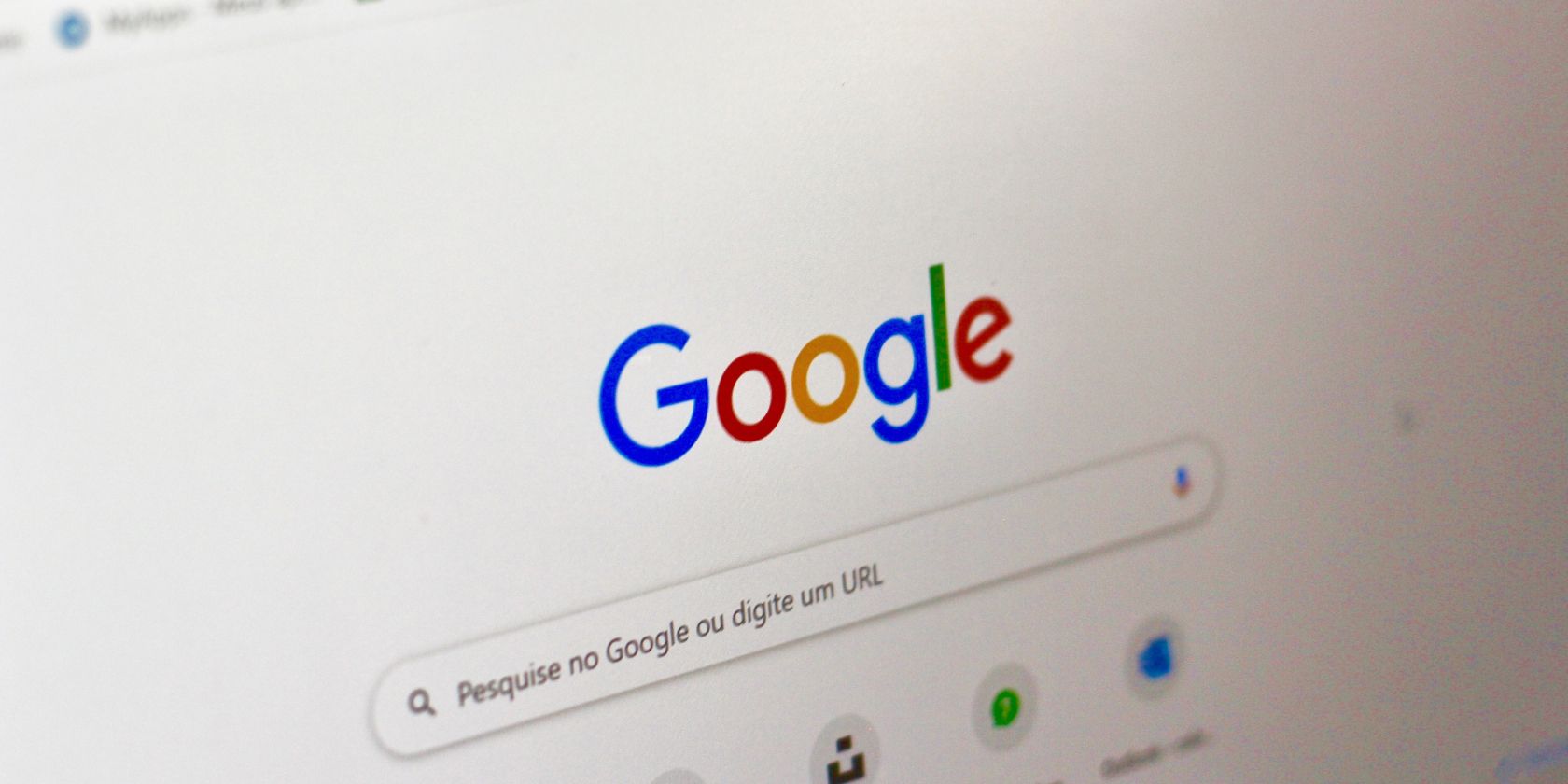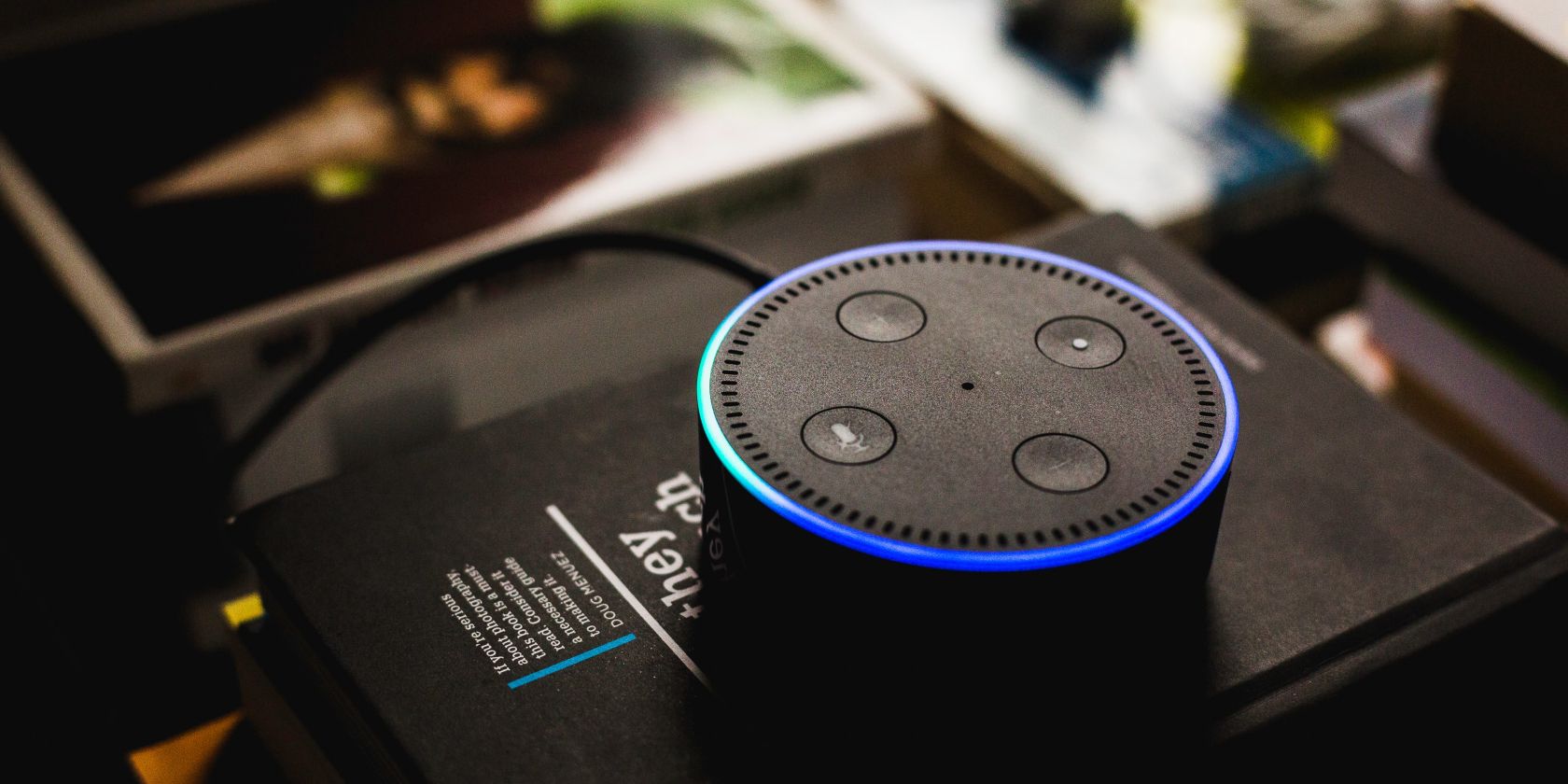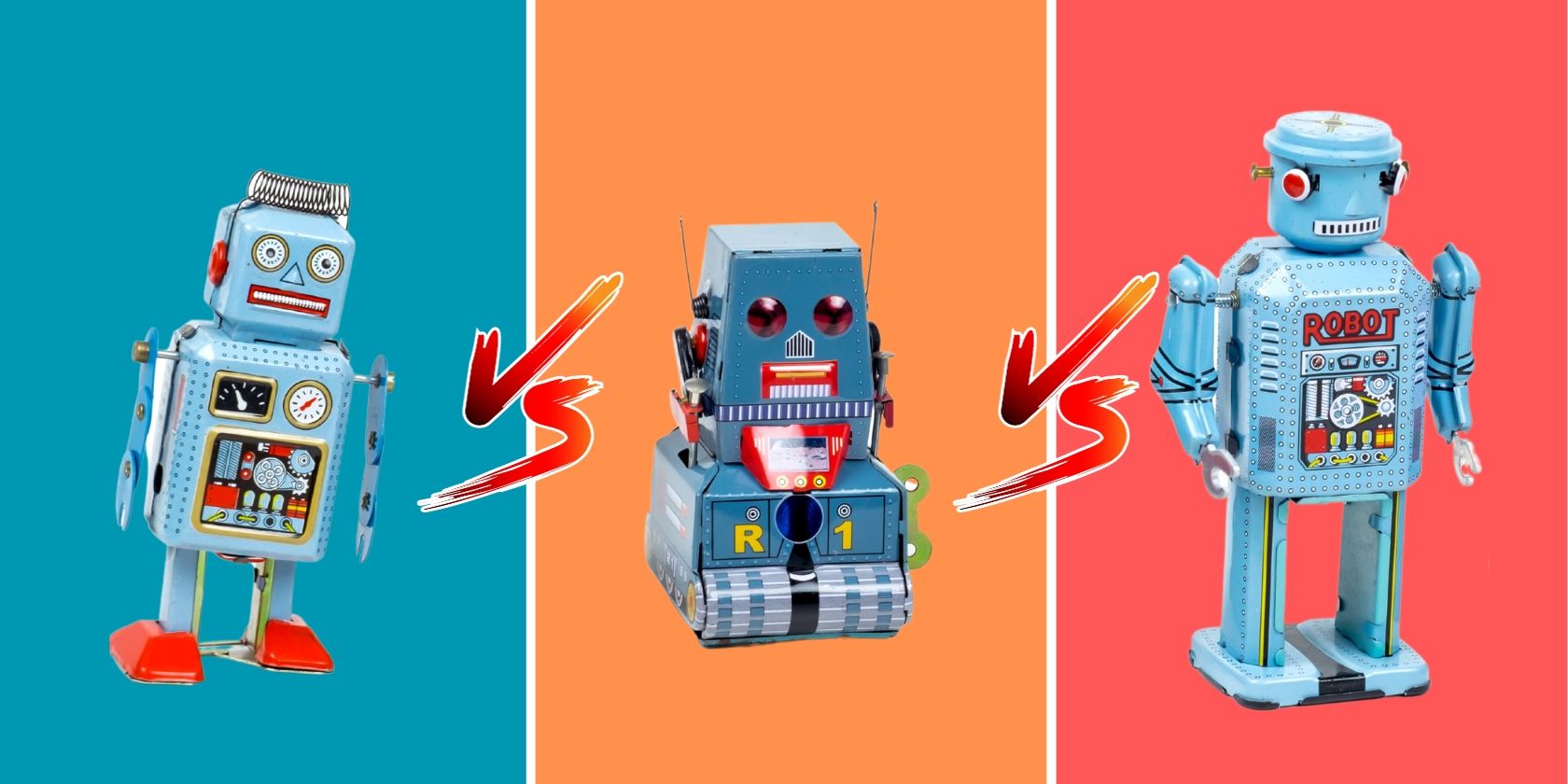Public AI vs. Private AI vs. Personal AI: What\'s the Difference?
AIs can be categorized as public, private, or personal AIs. Training and designing an AI system based on these categories can help solve issues on regulatory limitations, data privacy, and security.
This categorization also helps people understand the purpose of the AI, who operates it, how it handles your data, and what restrictions may be imposed to safeguard public, personal, and organizational interests.
To understand the difference between public, private, and personal AI, let’s compare them based on their purpose, performance, data handling, and privacy.
What Is Public AI?

Public AI refers to AIs trained on user data and various open-source platforms like Wikimedia and ResNet. These types of AI are some of the most popular and widely accessible forms of AI that people use daily for work, school, and personal projects.
Purpose
A public AI is an AI service, program, or algorithm that’s openly accessible to anyone on the internet. Public AIs are typically general-purpose applications that serve the global population, providing effective AI solutions for problems and tasks that would normally require many man-hours to accomplish. Some of the most popular public AI you may be familiar with include search engines, social media algorithms, language translators, and modern text-to-speech engines.
Accessibility
As stated earlier, public AIs are openly accessible to anyone on the internet. Most public AIs are already integrated into search engines, social media platforms, and extensions, which do not require any special sign-up or payments to use. Many public AI models, such as Llama, ResNet, and BERT, are also freely available online for anyone to use and fine-tune to make their own models.
Performance
Public AI systems are made to handle a large number of users simultaneously. Due to the number of users (sometimes in the range of millions), public AIs are set to perform just well enough to support as many users as possible. Certain regulations are also imposed on public AI to safeguard the interests of the state and its people. Typical regulation would include denying users certain types of information and constraining AI in its actions and capabilities.
Data Handling and Privacy
One of the biggest concerns about public AIs is their way of handling data and privacy. These systems collect large amounts of user data to improve and operate their AI algorithms and services. This, however, can be quite concerning, as the data might be misused by the organizations that own and operate the service. Laws and regulations in protecting user data and privacy are limited due to the nature of how public AI operates.
What Is Private AI?

The reason why businesses require a private AI is that Public AIs like ChatGPT introduce privacy and security issues for organizations. A private AI refers to AI models trained and fine-tuned to cater to the needs of an organization without compromising the security of trade secrets and other intellectual properties. Many private AIs are fine-tuned from publicly available LLMs using private data to tailor fit the AI model to the organization’s specific needs.
Purpose
The purpose of a Private AI is to have an AI system specifically built for an organization. It is used to solve internal business problems and enhance efficiency and overall productivity within the company. Private AIs are often employed in a variety of internal systems such as customer relations management (CRM), supply chain optimization, and fraud detection.
Accessibility
Unlike public AI, private AI is not openly available to the public. In general, access to a private AI is restricted to only authorized personnel to ensure that sensitive data and processes remain protected. It is important to note that although businesses use private AI for internal productivity, they also utilize a separate personal AI for customers to access their services.
Performance
Private AI is trained and streamlined for the specific needs of an organization. This allows businesses to fine-tune pre-trained LLMs or their model to achieve optimal performance for a given task. This, in turn, lowers the computing power necessary to run the AI with good performance while saving costs. Since it’s not accessible to the public, private AI has fewer regulations and can use unconstrained AI models or algorithms to boost the capability of their AI.
Data Handling and Privacy
Data handling and privacy is the biggest reason companies require a private AI. With a private AI, organizations can control and secure their data, minimizing the risk of data breaches and unauthorized access. Data used to fine-tune a private AI is curated by a team of hired engineers, data scientists, and software developers to design and train the model, which ensures that publicly available data bias their AI.
What Is Personal AI?

Personal AI refers to an AI algorithm made to aid people in their daily lives. They can usually be accessed through personal devices such as smartphones, tablets, smart speakers, and wearables. Some examples of personal AI would include virtual assistants like Alexa, Bixby, Google Assistant, and Siri.
Purpose
Personal AIs are designed to enhance a person’s user experience when interacting with technology to use a specific service. Personal AI algorithms provide a tailored experience to the user by adapting to their preferences, making it easier for customers to use a certain service.
Performance
Though not as scalable as public AI, personalized AI excels in understanding and responding to individual user requests. Personalized AI may also be incrementally slower than public AI as it needs to consider the relevance of the data to the user before it provides any result. That said, personal AI is more capable than private AI as it provides better and more relevant outputs for the user. Of course, performance will also depend on what personal AI service you prefer and how the company that made the AI operates it.
Data Handling and Privacy
Privacy and data handling are some of the biggest concerns regarding personal AI. Due to how personal AI is utilized in a service, laws permit companies to collect personal user data after users agree to terms of service. This makes them liable for protecting user data privacy and security. However, due to the data’s sensitivity, any data breach could potentially harm the privacy and security of the users.
Comparing Public, Private, and Personal AI

Categorizing AI into Public AI, Private AI, and Personal AI enables us to apply AI in solving specific tasks while maintaining optimal performance, accessibility, data security, and user privacy. Here’s a table for easy comparison:
Aspect | Public AI | Private AI | Personal AI |
|---|---|---|---|
Purpose | Broad, general purpose | Broad, general purpose | Individual user needs |
Accessibility | Open to the public | Restricted access, employee only | Access is limited to customers |
Performance | Scalable, supports a large number of users simultaneously, optimal | Customized, optimized for specific operational tasks, fast | Personalized, optimal |
Data Handling and Privacy | Low data privacy, companies can use data in accordance with the law | High data security, company handles its own data | Medium-level privacy, users agree to company terms of service |
The Importance of Categorizing AI
Understanding the difference between public AI, private AI, and personal AI is important as these categories represent how we use AI in our daily lives. It also helps us to create certain laws and regulations to ensure the privacy and security of individuals and organizations. Without these distinctions, such regulations will be harder to impose, which may result in companies misusing user data, leaking business trade secrets, or even the death of AI democratization.
-
 Indian AI Moment: Competition with China and the United States in Generative AIIndia's AI Ambitions: A 2025 Update With China and the US heavily investing in Generative AI, India is accelerating its own GenAI initiatives. Th...AI Posted on 2025-04-13
Indian AI Moment: Competition with China and the United States in Generative AIIndia's AI Ambitions: A 2025 Update With China and the US heavily investing in Generative AI, India is accelerating its own GenAI initiatives. Th...AI Posted on 2025-04-13 -
 Automating import of CSV to PostgreSQL using Airflow and DockerThis tutorial demonstrates building a robust data pipeline using Apache Airflow, Docker, and PostgreSQL to automate data transfer from CSV files to a ...AI Posted on 2025-04-12
Automating import of CSV to PostgreSQL using Airflow and DockerThis tutorial demonstrates building a robust data pipeline using Apache Airflow, Docker, and PostgreSQL to automate data transfer from CSV files to a ...AI Posted on 2025-04-12 -
 Swarm Intelligence Algorithms: Three Python ImplementationsImagine watching a flock of birds in flight. There's no leader, no one giving directions, yet they swoop and glide together in perfect harmony. It may...AI Posted on 2025-03-24
Swarm Intelligence Algorithms: Three Python ImplementationsImagine watching a flock of birds in flight. There's no leader, no one giving directions, yet they swoop and glide together in perfect harmony. It may...AI Posted on 2025-03-24 -
 How to Make Your LLM More Accurate with RAG & Fine-TuningImagine studying a module at university for a semester. At the end, after an intensive learning phase, you take an exam – and you can recall th...AI Posted on 2025-03-24
How to Make Your LLM More Accurate with RAG & Fine-TuningImagine studying a module at university for a semester. At the end, after an intensive learning phase, you take an exam – and you can recall th...AI Posted on 2025-03-24 -
 What is Google Gemini? Everything You Need To Know About Google’s ChatGPT RivalGoogle recently released its new Generative AI model, Gemini. It results from a collaborative effort by a range of teams at Google, including members ...AI Posted on 2025-03-23
What is Google Gemini? Everything You Need To Know About Google’s ChatGPT RivalGoogle recently released its new Generative AI model, Gemini. It results from a collaborative effort by a range of teams at Google, including members ...AI Posted on 2025-03-23 -
 Guide on Prompting with DSPyDSPy: A Declarative Framework for Building and Improving LLM Applications DSPy (Declarative Self-improving Language Programs) revolutionizes LLM appli...AI Posted on 2025-03-22
Guide on Prompting with DSPyDSPy: A Declarative Framework for Building and Improving LLM Applications DSPy (Declarative Self-improving Language Programs) revolutionizes LLM appli...AI Posted on 2025-03-22 -
 Automate Blog To Twitter ThreadThis article details automating the conversion of long-form content (like blog posts) into engaging Twitter threads using Google's Gemini-2.0 LLM,...AI Posted on 2025-03-11
Automate Blog To Twitter ThreadThis article details automating the conversion of long-form content (like blog posts) into engaging Twitter threads using Google's Gemini-2.0 LLM,...AI Posted on 2025-03-11 -
 Artificial Immune System (AIS): A Guide With Python ExamplesThis article explores artificial immune systems (AIS), computational models inspired by the human immune system's remarkable ability to identify a...AI Posted on 2025-03-04
Artificial Immune System (AIS): A Guide With Python ExamplesThis article explores artificial immune systems (AIS), computational models inspired by the human immune system's remarkable ability to identify a...AI Posted on 2025-03-04 -
 Try Asking ChatGPT These Fun Questions About YourselfEver wondered what ChatGPT knows about you? How it processes the information you've fed it over time? I've used ChatGPT heaps in different sce...AI Published on 2024-11-22
Try Asking ChatGPT These Fun Questions About YourselfEver wondered what ChatGPT knows about you? How it processes the information you've fed it over time? I've used ChatGPT heaps in different sce...AI Published on 2024-11-22 -
 Here\'s How You Can Still Try the Mysterious GPT-2 ChatbotIf you're into AI models or chatbots, you might have seen discussions about the mysterious GPT-2 chatbot and its effectiveness.Here, we explain wh...AI Published on 2024-11-08
Here\'s How You Can Still Try the Mysterious GPT-2 ChatbotIf you're into AI models or chatbots, you might have seen discussions about the mysterious GPT-2 chatbot and its effectiveness.Here, we explain wh...AI Published on 2024-11-08 -
 ChatGPT’s Canvas Mode Is Great: These Are 4 Ways to Use ItChatGPT's new Canvas mode has added an extra dimension to writing and editing in the world's leading generative AI tool. I've been using C...AI Published on 2024-11-08
ChatGPT’s Canvas Mode Is Great: These Are 4 Ways to Use ItChatGPT's new Canvas mode has added an extra dimension to writing and editing in the world's leading generative AI tool. I've been using C...AI Published on 2024-11-08 -
 How ChatGPT\'s Custom GPTs Could Expose Your Data and How to Keep It SafeChatGPT's custom GPT feature allows anyone to create a custom AI tool for almost anything you can think of; creative, technical, gaming, custom G...AI Published on 2024-11-08
How ChatGPT\'s Custom GPTs Could Expose Your Data and How to Keep It SafeChatGPT's custom GPT feature allows anyone to create a custom AI tool for almost anything you can think of; creative, technical, gaming, custom G...AI Published on 2024-11-08 -
 10 Ways ChatGPT Could Help You Land a Job on LinkedInWith 2,600 available characters, the About section of your LinkedIn profile is a great space to elaborate on your background, skills, passions, and f...AI Published on 2024-11-08
10 Ways ChatGPT Could Help You Land a Job on LinkedInWith 2,600 available characters, the About section of your LinkedIn profile is a great space to elaborate on your background, skills, passions, and f...AI Published on 2024-11-08 -
 Check Out These 6 Lesser-Known AI Apps That Provide Unique ExperiencesAt this point, most folks have heard of ChatGPT and Copilot, two pioneering generative AI apps that have led the AI boom.But did you know that heaps o...AI Published on 2024-11-08
Check Out These 6 Lesser-Known AI Apps That Provide Unique ExperiencesAt this point, most folks have heard of ChatGPT and Copilot, two pioneering generative AI apps that have led the AI boom.But did you know that heaps o...AI Published on 2024-11-08 -
 These 7 Signs Show We\'ve Already Reached Peak AIWherever you look online, there are sites, services, and apps proclaiming their use of AI makes it the best option. I don't know about you, but it...AI Published on 2024-11-08
These 7 Signs Show We\'ve Already Reached Peak AIWherever you look online, there are sites, services, and apps proclaiming their use of AI makes it the best option. I don't know about you, but it...AI Published on 2024-11-08
Study Chinese
- 1 How do you say "walk" in Chinese? 走路 Chinese pronunciation, 走路 Chinese learning
- 2 How do you say "take a plane" in Chinese? 坐飞机 Chinese pronunciation, 坐飞机 Chinese learning
- 3 How do you say "take a train" in Chinese? 坐火车 Chinese pronunciation, 坐火车 Chinese learning
- 4 How do you say "take a bus" in Chinese? 坐车 Chinese pronunciation, 坐车 Chinese learning
- 5 How to say drive in Chinese? 开车 Chinese pronunciation, 开车 Chinese learning
- 6 How do you say swimming in Chinese? 游泳 Chinese pronunciation, 游泳 Chinese learning
- 7 How do you say ride a bicycle in Chinese? 骑自行车 Chinese pronunciation, 骑自行车 Chinese learning
- 8 How do you say hello in Chinese? 你好Chinese pronunciation, 你好Chinese learning
- 9 How do you say thank you in Chinese? 谢谢Chinese pronunciation, 谢谢Chinese learning
- 10 How to say goodbye in Chinese? 再见Chinese pronunciation, 再见Chinese learning

























